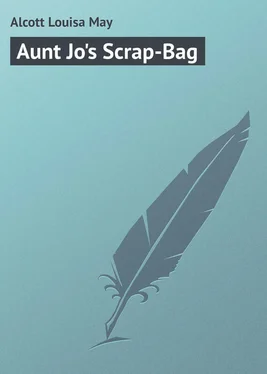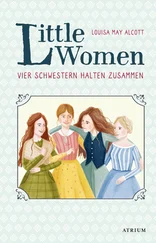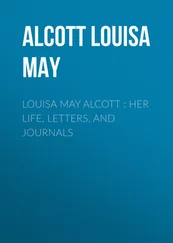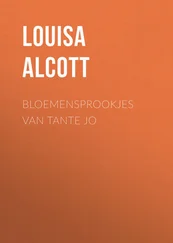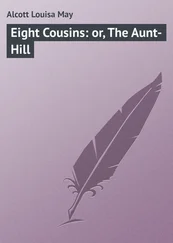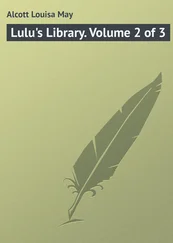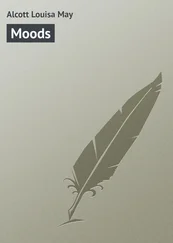Louisa Alcott - Aunt Jo's Scrap-Bag
Здесь есть возможность читать онлайн «Louisa Alcott - Aunt Jo's Scrap-Bag» — ознакомительный отрывок электронной книги совершенно бесплатно, а после прочтения отрывка купить полную версию. В некоторых случаях можно слушать аудио, скачать через торрент в формате fb2 и присутствует краткое содержание. Издательство: Иностранный паблик, Жанр: foreign_language, foreign_prose, foreign_children, на английском языке. Описание произведения, (предисловие) а так же отзывы посетителей доступны на портале библиотеки ЛибКат.
- Название:Aunt Jo's Scrap-Bag
- Автор:
- Издательство:Иностранный паблик
- Жанр:
- Год:неизвестен
- ISBN:нет данных
- Рейтинг книги:3 / 5. Голосов: 1
-
Избранное:Добавить в избранное
- Отзывы:
-
Ваша оценка:
- 60
- 1
- 2
- 3
- 4
- 5
Aunt Jo's Scrap-Bag: краткое содержание, описание и аннотация
Предлагаем к чтению аннотацию, описание, краткое содержание или предисловие (зависит от того, что написал сам автор книги «Aunt Jo's Scrap-Bag»). Если вы не нашли необходимую информацию о книге — напишите в комментариях, мы постараемся отыскать её.
Aunt Jo's Scrap-Bag — читать онлайн ознакомительный отрывок
Ниже представлен текст книги, разбитый по страницам. Система сохранения места последней прочитанной страницы, позволяет с удобством читать онлайн бесплатно книгу «Aunt Jo's Scrap-Bag», без необходимости каждый раз заново искать на чём Вы остановились. Поставьте закладку, и сможете в любой момент перейти на страницу, на которой закончили чтение.
Интервал:
Закладка:
I could not get at him as easily as I could the other lads, but, thanks to Dickens, I found him out at last.
We played Dolphus and Sophy Tetterby in the 'Haunted Man,' at one of the school festivals; and during the rehearsals I discovered that my Dolphus was – permit the expression, oh, well-bred readers! – a trump. What fun we had to be sure, acting the droll and pathetic scenes together, with a swarm of little Tetterbys skirmishing about us! From that time he has been my Dolphus and I his Sophy, and my yellow-haired laddie don't forget me, though he has a younger Sophy now, and some small Tetterbys of his own. He writes just the same affectionate letters as he used to do, though I, less faithful, am too busy to answer them.
But the best and dearest of all my flock was my Polish boy, Ladislas Wisniewski – two hiccoughs and a sneeze will give you the name perfectly. Six years ago, as I went down to my early breakfast at our Pension in Vevey, I saw that a stranger had arrived. He was a tall youth, of eighteen or twenty, with a thin, intelligent face, and the charmingly polite manners of a foreigner. As the other boarders came in, one by one, they left the door open, and a draught of cold autumn air blew in from the stone corridor, making the new-comer cough, shiver, and cast wistful glances towards the warm corner by the stove. My place was there, and the heat often oppressed me, so I was glad of an opportunity to move.
A word to Madame Vodoz effected the change; and at dinner I was rewarded by a grateful smile from the poor fellow, as he nestled into his warm seat, after a pause of surprise and a flush of pleasure at the small kindness from a stranger. We were too far apart to talk much, but, as he filled his glass, the Pole bowed to me, and said low in French – 'I drink the good health to Mademoiselle.'
I returned the wish, but he shook his head with a sudden shadow on his face, as if the words meant more than mere compliment to him.
'That boy is sick and needs care. I must see to him,' said I to myself, as I met him in the afternoon, and observed the military look of his blue and white suit, as he touched his cap and smiled pleasantly. I have a weakness for brave boys in blue, and having discovered that he had been in the late Polish Revolution, my heart warmed to him at once.
That evening he came to me in the salon, and expressed his thanks in the prettiest broken English I ever heard. So simple, frank, and grateful was he that a few words of interest won his little story from him, and in half an hour we were friends. With his fellow-students he had fought through the last outbreak, and suffered imprisonment and hardship rather than submit, had lost many friends, his fortune and his health, and at twenty, lonely, poor, and ill, was trying bravely to cure the malady which seemed fatal.
'If I recover myself of this affair in the chest, I teach the music to acquire my bread in this so hospitable country. At Paris, my friends, all two, find a refuge, and I go to them in spring if I die not here. Yes, it is solitary, and my memories are not gay, but I have my work, and the good God remains always to me, so I content myself with much hope, and I wait.'
Such genuine piety and courage increased my respect and regard immensely, and a few minutes later he added to both by one of the little acts that show character better than words.
He told me about the massacre, when five hundred Poles were shot down by Cossacks in the market-place, merely because they sung their national hymn.
'Play me that forbidden air,' I said, wishing to judge of his skill, for I had heard him practising softly in the afternoon.
He rose willingly, then glanced about the room and gave a little shrug which made me ask what he wanted.
'I look to see if the Baron is here. He is Russian, and to him my national air will not be pleasing.'
'Then play it. He dare not forbid it here, and I should rather enjoy that little insult to your bitter enemy,' said I, feeling very indignant with everything Russian just then.
'Ah, mademoiselle, it is true we are enemies, but we are also gentlemen,' returned the boy, proving that he at least was one.
I thanked him for his lesson in politeness, and as the Baron was not there he played the beautiful hymn, singing it enthusiastically in spite of the danger to his weak lungs. A true musician evidently, for, as he sung his pale face glowed, his eyes shone, and his lost vigor seemed restored to him.
From that evening we were fast friends; for the memory of certain dear lads at home made my heart open to this lonely boy, who gave me in return the most grateful affection and service. He begged me to call him 'Varjo,' as his mother did. He constituted himself my escort, errand-boy, French teacher, and private musician, making those weeks indefinitely pleasant by his winning ways, his charming little confidences, and faithful friendship.
We had much fun over our lessons, for I helped him about his English. With a great interest in free America, and an intense longing to hear about our war, the barrier of an unknown tongue did not long stand between us.
Beginning with my bad French and his broken English, we got on capitally; but he outdid me entirely, making astonishing progress, though he often slapped his forehead with the despairing exclamation, – 'I am imbecile! I never can will shall to have learn this beast of English!'
But he did, and in a month had added a new language to the five he already possessed.
His music was the delight of the house; and he often gave us little concerts with the help of Madame Teiblin, a German St. Cecilia, with a cropped head and a gentlemanly sack, cravat, and collar. Both were enthusiasts, and the longer they played the more inspired they got. The piano vibrated, the stools creaked, the candles danced in their sockets, and every one sat mute while the four white hands chased one another up and down the keys, and the two fine faces beamed with such ecstasy that we almost expected to see instrument and performers disappear in a musical whirlwind.
Lake Leman will never seem so lovely again as when Laddie and I roamed about its shores, floated on its bosom, or laid splendid plans for the future in the sunny garden of the old chateau. I tried it again last year, but the charm was gone, for I missed my boy with his fun, his music, and the frank, fresh affection he gave his 'little mamma,' as he insisted on calling the lofty spinster who loved him like half-a-dozen grandmothers rolled into one.
December roses blossomed in the gardens then, and Laddie never failed to have a posy ready for me at dinner. Few evenings passed without 'confidences' in my corner of the salon, and I still have a pile of merry little notes which I used to find tucked under my door. He called them chapters of a great history we were to write together, and being a ' polisson ' he illustrated it with droll pictures, and a funny mixture of French and English romance.
It was very pleasant, but like all pleasant things in this world of change it soon came to an end. When I left for Italy we jokingly agreed to meet in Paris the next May, but neither really felt that we should ever meet again, for Laddie hardly expected to outlive the winter, and I felt sure I should soon be forgotten. As he kissed my hand there were tears in my boy's eyes, and a choke in the voice that tried to say cheerfully – ' Bon voyage , dear and good little mamma. I do not say adieu, but au revoir .'
Then the carriage rolled away, the wistful face vanished, and nothing remained to me but the memory of Laddie, and a little stain on my glove where a drop had fallen.
As I drew near Paris six months later, and found myself wishing that I might meet Varjo in the great, gay city, and wondering if there was any chance of my doing it, I never dreamed of seeing him so soon; but, as I made my way among the crowd of passengers that poured through the station, feeling tired, bewildered, and homesick, I suddenly saw a blue and white cap wave wildly in the air, then Laddie's beaming face appeared, and Laddie's eager hands grasped mine so cordially that I began to laugh at once, and felt that Paris was almost as good as home.
Читать дальшеИнтервал:
Закладка:
Похожие книги на «Aunt Jo's Scrap-Bag»
Представляем Вашему вниманию похожие книги на «Aunt Jo's Scrap-Bag» списком для выбора. Мы отобрали схожую по названию и смыслу литературу в надежде предоставить читателям больше вариантов отыскать новые, интересные, ещё непрочитанные произведения.
Обсуждение, отзывы о книге «Aunt Jo's Scrap-Bag» и просто собственные мнения читателей. Оставьте ваши комментарии, напишите, что Вы думаете о произведении, его смысле или главных героях. Укажите что конкретно понравилось, а что нет, и почему Вы так считаете.
